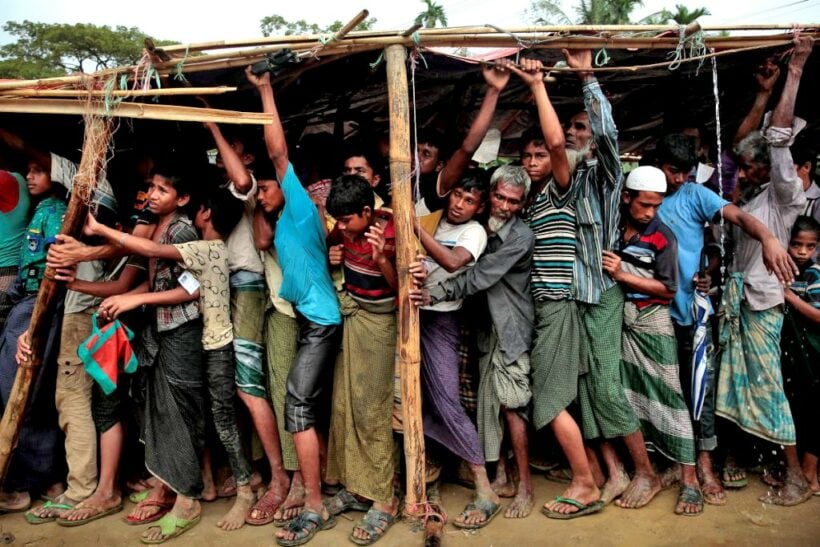Rohingya genocide case allowed to move forward in UN Court

After more than a year of a violent and often bloody military coup in Myanmar, it’s easy to forget that the country was already mired in genocide accusations before forces overthrew the government in February of last year. But in an ongoing case, the International Court of Justice at the United Nations has rejected Myanmar’s attempt to avoid trial for the genocide of the Rohingya people in 2017.
The court in The Hague said that the case brought on by The Gambia, a small West African Muslim country, in November of 2019 is sound and can move forward. The Burmese people are majority Buddhist, and in 2017 the minority Rohingya people faced a bloody crackdown with reports of murder, rape, and arson during which time about 850,000 people fled to refugee camps across the border in Bangladesh with another 600,000 still struggling in Rakhine, a state on the southwestern Burmese border.
With dozens of Rohingya activists protesting outside the court during deliberation, the International Court of Justice found that all of the grounds that the Burmese military government had put forth to argue that the genocide case should be dismissed in its early stages were not legitimate.
Myanmar had argued that The Gambia was serving as a proxy to represent the Organisation of Islamic Cooperation, a 57-country consortium, since organisations cannot file cases while countries can. That argument was unanimously rejected by the court along with a similar claim The Gambia was not a direct party to the genocide and that the Burmese government had opted out of the genocide convention covering such matters, so should be exempted from the trial.
In a 15 to 1 decision, the court also rejected a claim that they lacked jurisdiction because there was no formal dispute during the time of the alleged genocide.
Now that the ICJ has ruled that the case is admissible and they have jurisdiction, the trial can move forward, though it’s expected to take years for hearings to be carried out and the final judgment to be made. Still, human rights groups as well as Rohingya people around the world celebrated the decision as bringing hope to suffering people in Myanmar.
SOURCE: The Phuket News
Latest Thailand News
Follow The Thaiger on Google News:


























